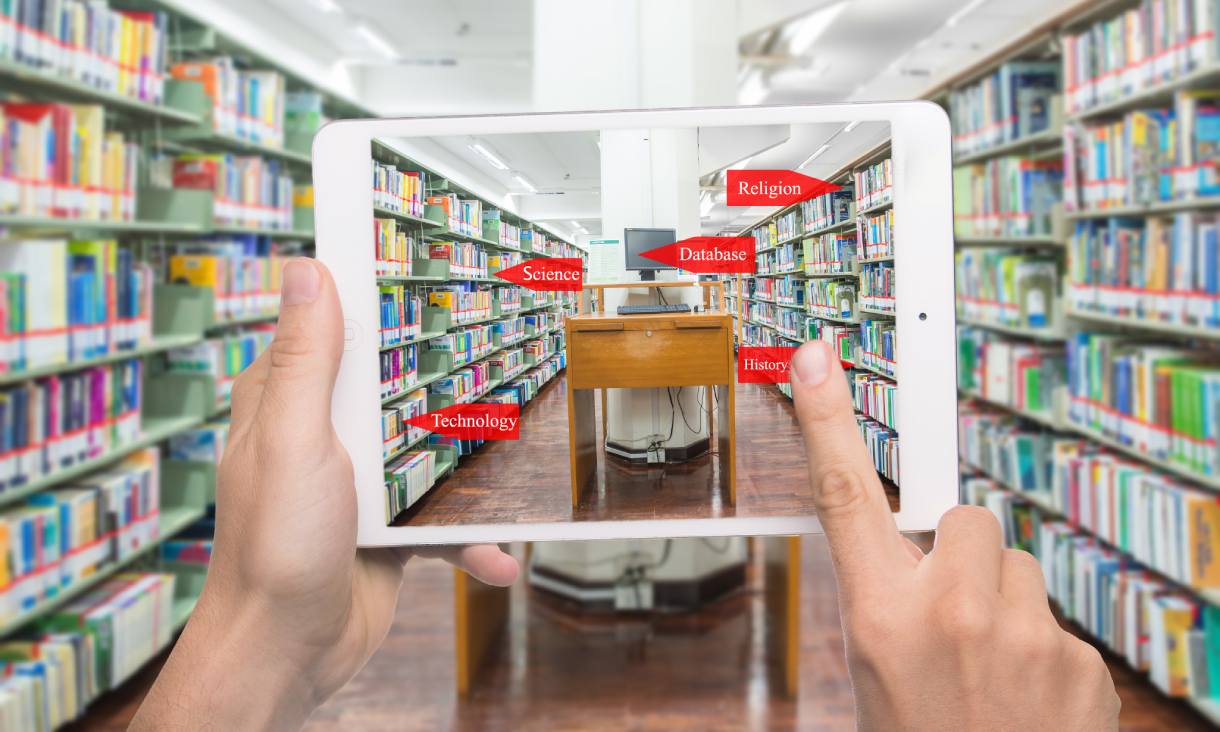Library collections contain resources in a variety of types and formats, such as databases, books, journals, multimedia and standards.
Highlights from our collections
Databases include a range of resources such as scholarly journals and articles, newspaper articles, e-books, videos, images and company records. Popular databases include:
- Australian Standards (you will need Adobe Reader or PDF Xchange to download the standards. Find out more about accessing protected PDF documents).
- EBSCOhost Web
- eMIMS Elite
- Euromonitor Passport
- IBISWorld
- ProQuest Central
- PubMed
- Scopus
- Web of Science
- WGSN
Check the Library subject guide in the relevant subject area for the list of recommended databases.
The Library provides books in both print and electronic format. Popular e-book platforms include:
- EBSCOhost e-Book collection
- Emerald
- IGI Global e-Books
- Knovel
- ProQuest Ebook Central
- ScienceDirect (e-books)
- SpringerLink Books
- Taylor & Francis eBooks
Check the e-Book subject guide for how to find and use e-books.
The Library provides journals in both print and electronic format which can all be found using LibrarySearch. Popular e-journal platforms include:
Browse journals by title
BrowZine lets you browse our e-journal collection on a desktop or mobile. An app is available for iOS, Android and Kindle Fire. Log in with your RMIT password.
Find articles
To find e-journal articles you can use LibrarySearch or Google Scholar. Log in first to access the full text of publications we subscribe to. If this is your first time using Google Scholar to search our collections, find out more about the options for using Google Scholar.
The Library provides access to images, audio and video resources. You can find high quality images from reputable sources covering architecture, art, fashion, health and medical, media, advertising, science and engineering. We also have a growing collection of online videos covering instructional tutorials, Australian current affairs, documentaries, drama series, feature films and subject-specific content.
Important: When using images, you must observe copyright and any other conditions of use. Copyright advice is available if you're unsure what to do.
- LinkedIn Learning offers online training in business, software, technology and creative skills. First time user? Find out more about LinkedIn Learning.
- Alexander Street includes documentaries, features, educational and informative videos (and audio), and a wealth of archival material. It lets you create clips and playlists of your favourite videos.
- ClickView (enter RMIT email address to be directed to the RMIT log in page) Educational videos in Arts, Business, Health and Technology.
- EduTV contains Australian and international content including current affairs programs, documentaries, drama series, and feature films. Programs are archived with new content added weekly.
- Nearmap access high quality PhotoMaps over Australian cities and towns that are updated monthly. (Only available in Australia)
- Pro Sounds Effects is a library of over 120,000 sound effects.
- Artstor contains a series of art and architecture image collections for teaching and research purposes.
RMIT University Archives preserves and makes available a repository of records that help to tell the story of how the institution has evolved from the Working Men's College in 1887 to the global university of today. The collection spans from the commencement of the Working Men’s College in 1887 until present day, and includes records of predecessor entities.
Check the News and newspapers subject guide for information about newspapers. Popular newspapers and news platforms include:
You can find items from the Reserve collection, such as course readings, using LibrarySearch. To access online documents, you must be logged in to LibrarySearch.
Search tips:
Log in to LibrarySearch
Enter your course code, e.g. ACCT2033.
Select 'Course readings' from the pull-down menu and start searching.
The Library hosts a number of thematic and unique collections in both physical and digital formats.
Digitised resources
Access a variety of RMIT-created, digitised or licensed resources that are available for use for learning, teaching, marketing and promotional purposes. You can browse all digital collections or locate a specific item using LibrarySearch.
- Open Educational Resources collection includes RMIT-created resources, Open Textbooks and other Open Educational resources not created by RMIT.
- RMIT images collection includes snapshots of Buildings, events and activities, campus life and students, general and eSimulations.
- Video and audio collection contains third party video and audio licensed for use for learning and teaching purposes.
- Laboratory Medicine Slides collection includes over 200 digitised slides used for teaching in pathology, cytopathology, histopathology and haematology courses.
- Digitised special collections include Architecture slides, and books, artefacts and photos from the Emily McPherson and Student Printmaking collections.
- New Academic Street: Behind the Hoarding collection contains learning resources related to the New Academic Street project.
- Student Works collection contains works contributed by RMIT students who have consented to make their work available to the RMIT community for educational reuse.
- Library Learning and Teaching collection includes items on eReserve and the School of Engineering and Health Academic Development Group collection.
- Catalyst collection contains digitised copies of the student publication from its inception. Catalyst's first edition, issued by what was then known as the Representative Council of Students of Melbourne Technical College (later RMIT University Student Union), appeared on 18 May 1944.
Special Collections Room
Our Special Collections Room houses rare, valuable or vulnerable items, including:
- Material relating to the history and development of RMIT University Library and its collections
- Items published before 1900
- Outstanding examples of book production, such as significant illustrative or other graphic material
- Items of high cost and/or high value
- Limited editions of not more than 100 copies
- Items with significant provenance (history or ownership)
- Irreplaceable material
- Artists' books
- RMIT University theses with extra materials - for example DVDs, videos and slides (prefix: THR)
Databases on trial
There are no trials at the moment.
Help
Not sure where to start?
Check your subject guide to see which databases we recommend for your area of study or ask our friendly Librarians for advice.
Can’t find it in our Library?
Access problems?
- Troubleshooting access to e-resources
- OpenAthens authentication system
- Report access problems via Ask the Library
Using assistive technology?
Accessibility of online databases, e-journals and e-books vary. For one-on-one help, email lib.ask@rmit.edu.au.
Here are accessibility instructions and tips from some of the major database vendors:




